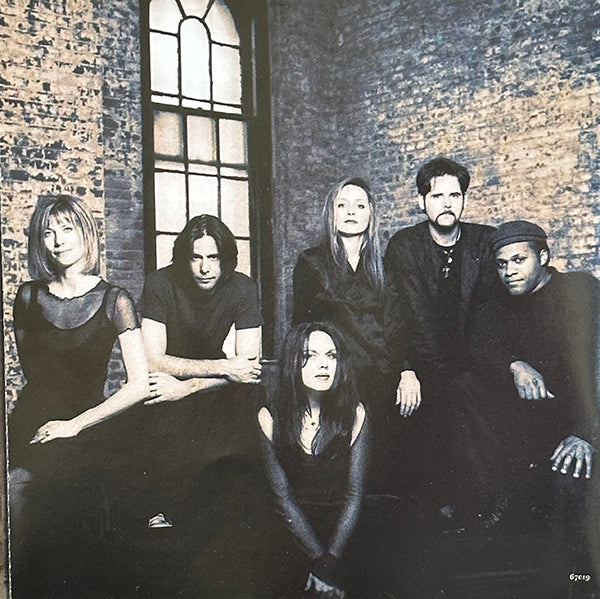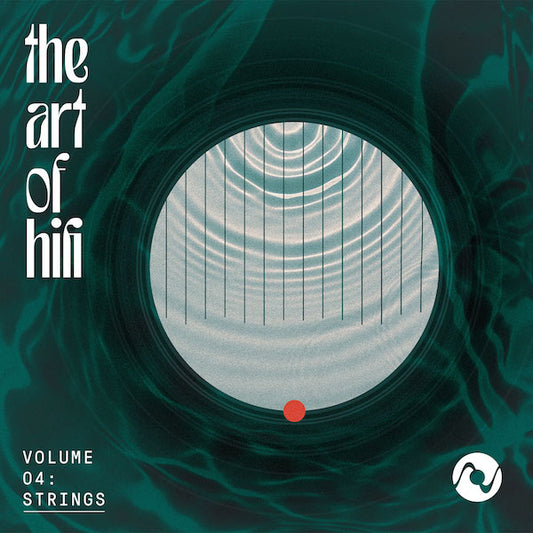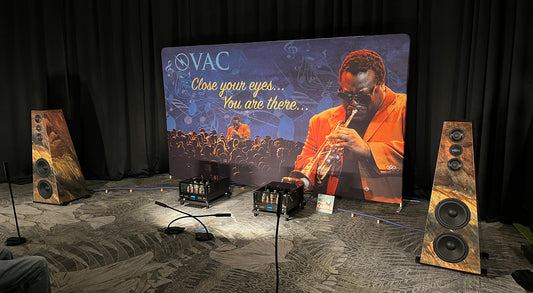I have to think that most our readers are familiar with the concept of “Desert Island Discs.” The premise is to make a list of albums (usually 10) that one would take if stranded on a desert island, forsaking all others (assuming, of course, that there was a sustainable means of playback for said albums).
For me, and many others, it is a daunting task – paring one’s collection down to the 10 core works of musical art that could, hopefully, satisfy one over the remaining years. I would prefer to be given the option of creating 10 album-length compilations, therefore providing a much wider range of performances, but that’s cheating.
What if, instead of 10 discs, you could only take one? Are there any albums in your collection that could hold up over innumerable repeat plays, one that would provide lasting satisfaction the rest of your life? I’ve thought about it, and I think I have a few that, for my musical tastes, would qualify. I surprised myself, in that, despite the fact that progressive rock is my favorite genre, my selections do not include any in that style, nor are the candidates any of the influential albums from my youth. In this article I will focus on the third of those choices. The first, Bellybutton, by Jellyfish, was featured in Issue 183. The second, Answers to Nothing, by Midge Ure, was described in Issue 189.
I think that, for me, to hold up under such challenging conditions, an album would have to incorporate the following elements: 1) a reasonably wide variety of moods and styles, 2) arrangements that are complex and interesting, and 3) high-quality engineering and production sufficient to satisfy my audiophile idiosyncrasies. A lot of records would qualify if two out of three were enough, but all three?

October Project, Falling Farther In, album cover.
A third album that checks all the boxes for me is Falling Farther In, the second album by October Project. I don’t expect that many of you are familiar with them, but I think they deserved wider recognition. Although their first album is filled with beautiful music, the sound is a bit murky. The production (by Peter Collins) and engineering (by David Leonard) are vastly improved on Falling Farther In, their second and final album with lead singer Mary Fahl.
The group had its beginnings in New Jersey, with the teenage collaboration of lyricist Julie Flanders and keyboardist/vocalist/arranger Emil Adler composing songs together. Vocalist and keyboard player Marina Belica was Julie’s roommate at Yale. Guitarist/vocalist David Sabatino met Adler at a New York City jam session. Flanders then brought in Mary Fahl as a vocalist. Percussionist Urbano Sanchez chose to remain a sideman, despite being offered membership in the band. Other musicians contributing to the album include bassist Michael Visceglia, drummer Craig Thatcher, and guitarist Marc Shulman.
They released their first two albums in the 1990s before being dropped by Epic records and disbanding. In the early 2000s, Adler, Flanders, and Belica re-formed and recorded an EP, Different Eyes. A tribute album, October Project Covered, was released in 2006 featuring a number of lesser-known indie artists. It wasn’t until 2015 that a full album was recorded by the new incarnation of October Project. The Book of Rounds, consisting of 21 vocal rounds, was quite a departure from the sound and style of the earlier recordings. The music was composed by Adler, with lyrics by Flanders.
Getting back to the album at hand, Falling Farther In opens with “Deep As You Go.” Chiming guitars provide an introduction before Mary Fahl’s vocals take over. Strings and percussion follow, building to a full ensemble piece.
“Something More Than This” features another creative arrangement and Mary’s passionate singing. As one might surmise from the title, there is a definite sense of yearning.
“Sunday Morning Yellow Sky” has a very catchy rhythm and fine harmonies.
The opening lyrics to “Adam and Eve” are “Only ever really one story, a boy and a girl, and a dream of the world.” The emotion in Mary Fahl’s voice is palpable.
“Johnny” tells of a small-town boy with aspirations.
Although the intro is moody and slow, “Funeral in His Heart” becomes one of the album’s most driving, up-tempo numbers.
A spacey opening belies the power to come in “After the Fall.”
“One Dream” starts with a bang before settling down into a groove. This is another track that expresses a deep longing.
“Dark Time” is the most overtly religious of the tracks. The instrumentation and arrangement are as compelling as anything on the album.
The title track opens with very slow percussion and builds to the kind of furious crescendo that makes you think it’s the final number, but no.
The last track, “If I Could,” has the feel of a lullaby, letting you down gently after the energy of the previous song.
My conclusion about Midge Ure’s Answers to Nothing is equally applicable to Falling Farther In: “The album’s rich arrangements, crisp production, and overall clean sound serve the songs well. If I had to, I could live with just this album for a long time.”
As a special bonus, here’s a beautiful rendition of “Return to Me,” a song featured on their first album. This is a live solo performance by Mary with the backing of the Youth Orchestra of Bucks County. If this doesn’t make you a fan of hers, nothing will.
Sometimes you’ve got to love the comments section on these videos. Among the nearly unanimous comments praising her for her singing voice, there’s this: “… when I die, I want to come back as her diaphragm.” Let’s assume he’s talking about the one that draws her breath.
Header image: October Project, Falling Farther In, back cover.



